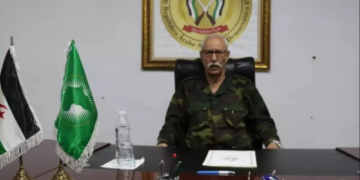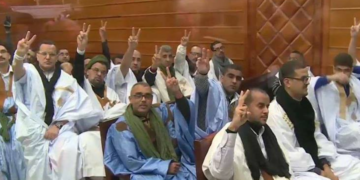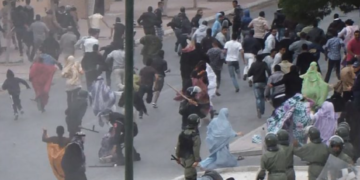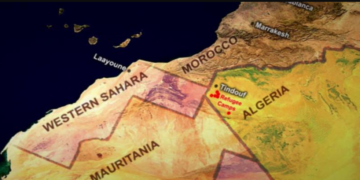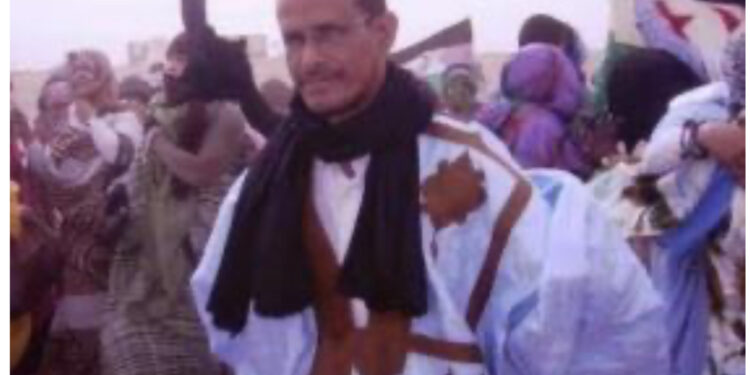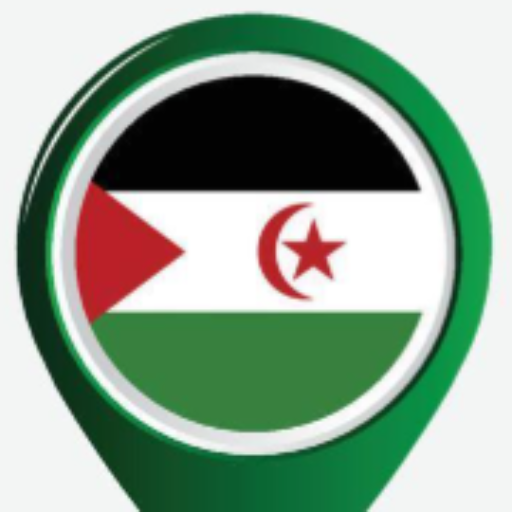Occupied Western Sahara – September 2025
On the eleventh anniversary of the death of prominent Sahrawi activist Hassanna El-Wali, his family has renewed demands for an independent investigation into the circumstances surrounding his passing while in Moroccan custody.
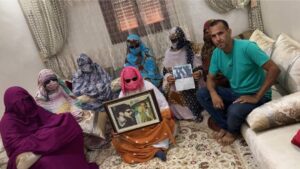
Death in Custody After Denied Medical Care
Hassanna El-Wali died in 2014 following severe health complications while serving a three-year sentence in Dakhla prison, imposed for his political activism and participation in peaceful protests.
El-Wali had suffered from deteriorating health after repeated instances of torture during his arrest in 2012, including a broken hand. Despite his worsening condition, Moroccan prison authorities reportedly refused timely medical treatment, transferring him only after sustained pressure from fellow Sahrawi political prisoners.
He was first taken to Hassan II Hospital in occupied Laayoune, where medical staff allegedly displayed negligence. Later, he was moved to the military hospital in Dakhla, where he remained in a coma for several days, dependent on artificial respiration, before passing away.
Human rights defenders stress that this case was not isolated; El-Wali was the ninth Sahrawi activist to die in detention under similar circumstances, highlighting what they describe as a systematic policy of medical neglect and abuse against Sahrawi prisoners.
Brother’s Renewed Appeal for Justice
Marking the anniversary, Mrabih Rabo El-Wali, brother of the deceased activist, condemned Morocco’s continued harassment of his family. He reported that Moroccan authorities have destroyed his fishing boats and cut off a small monthly allowance he depended on, acts he believes are retaliation for his insistence on truth and accountability.
“My brother’s death cannot remain without answers,” he said. “I call once again for a transparent, impartial investigation that reveals the real circumstances of Hassanna’s death and holds those responsible accountable.”
Wider Pattern of Repression
Observers link Hassanna El-Wali’s death to Morocco’s broader strategy of repression in Western Sahara, where Sahrawi activists are frequently subjected to arbitrary arrests, torture, and denial of basic rights, including healthcare and employment.
Human rights organizations have repeatedly urged the international community to pressure Morocco to respect its obligations under international law and to end practices that target Sahrawi civilians for their political beliefs.
Continuing the Legacy of Resistance
Despite years of harassment, the El-Wali family affirms their determination to keep Hassanna’s memory alive and to continue advocating for justice, dignity, and the right of the Sahrawi people to self-determination.

